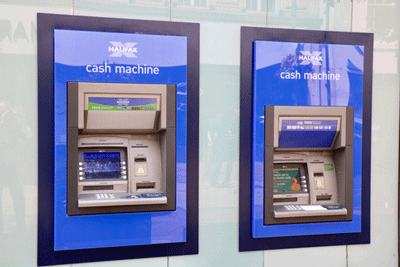- |
- Business
- Compare Exchange Rates
- |
- |
- Reviews
- |
- Help
- |
- Contact Us
- |
- Blogs
- |
- Currency Converter


February 2021
If you need to send money abroad, you will probably do a lot of research to find the cheapest way to do it. It's a great idea to compare financial institutions to decide which one offers the best exchange rate to conduct the international payment. However you also need to compare the associated fees to your foreign exchange transaction so here's what you need to know!
Financial institutions provide the service of transferring your funds from one bank account to another and will therefore charge for this. Depending on who you trust to complete your international payment will depend on how clearly they state their exact fees. Some companies work on what is known as a spread based model. This means that their margin is included within the exchange rate that they offer you. With these companies, you will have to do some homework in discovering how much they are actually taking off your transaction. To do this, you will have to find the interbank exchange rate at the point in time of your transfer and then calculate the percentage value off the exchange rate that is being applied to your transfer. Although brokers do not also get the interbank exchange rate, this difference between the interbank spot rate and the rate offered on your international payment will give you a benchmark to work out approximately what their fees will be and you can quickly compare this with other providers in the dynamic market of foreign exchange. Companies such as Travelex, Moneycorp and the high street banks have for years, used this model.
The alternative, is to use transparent foreign exchange companies that are up front about their spread structure per international payment. Companies such as World First, Transferwise and The Currency Club do exactly this. From the outset, you can see the real interbank exchange rate before confirming their best offered exchange rate allowing you to easily work out the overall cost or you will be offered the interbank exchange rate with a set percentage associated to the fee on top. These methods of transparency is is seen as a fairer and simpler way to send money overseas and always works out at a lower cost!
In order to send funds to a bank account outside the UK, there are two additional entities that are used not just the company you entrust to transfer the funds. One is the beneficiary bank and the other is an intermediary bank. The intermediary bank is used to facilitate the transfer of funds going to a bank in another country and the beneficiary bank is ultimately the bank which will allocate the funds to the end recipient. The intermediary bank, charge a fee for processing the payment. These fees can be as a percentage of the amount of the international transfer and others simply charge a flat fee.
The company you choose to conduct the international payment will have no control over the charges imposed by the corresponding banks and/ or when these charges will be claimed.
So for example, let's say you are an HSBC customer and you decided to transfer USD 2000 to your friend in the UK. HSBC uses Bank of New York Melon as the intermediary bank, which in turn takes 25$ to facilitate the transaction. HSBC separately charges (at the time of writing) another fee of $6 to the account holder for making an international bank transfer. So your friend in London actually receives USD 1975. Furthermore, the exchange rate offered may not even be the interbank exchange rate.
To give you more control of who pays the fees, there are three options to choose and for example purposes, we will assume that you use The Currency Club to send money abroad:
This is the most commonly used method where the sender and the recipient are prepared to share any fees from the amount on the transfer. There is a chance that the beneficiary's bank may take some charges from the amount you wish to send but The Currency Club would have no control over this. So in this option, the associated charges of the international transfer are split between you and the beneficiary. (please refer to the example above).
In this scenario, The Currency Club will deduct their fees from the amount instructed on the international transfer. Furthermore, any other fees charged by the intermediary bank and/or the beneficiary bank will also be deducted from the transfer amount. The end result is the beneficiary receives less than what was originally on the international payment.
Any associated charges will be paid by the sender on top of the original amount on the international payment. This results in the beneficiary receiving the full amount due.
Please note that when using The Currency Club, if you submit your international payment online, the default setting is where the charges are shared between the sender and the beneficiary. This is common with other companies too. If you require the exact amount to be sent to the beneficiary, for example to pay an invoice or a gift, you can contact the company and request for all charges to be paid by you.
Hopefully, the above explanation has made things clearer when you are considering sending money abroad. Getting the best exchange rate is of course important but the benefits of that can be eroded if the fees charged are too high. Select a company that can offer you access to the interbank or real exchange rate on your international payment before confirmation online regardless of the currency or amount you are sending. Transparent fees ensure that you get the best exchange rate whilst minimising the overall expense of sending money abroad.
Finally and this goes without saying, look for a company that is reputable. Check reviews online from existing customers and whether the company is regulated. For your first transaction, make sure you start by sending a small amount and ideally try to speak to someone over the phone to give you greater confidence. Lastly, use your credit card when transacting for the first time as this gives you greater protection should a company run into any financial crisis.

We have made every effort to ensure that the information published here is correct and accurate, however you should check and confirm the latest exchange rates with The Currency Club directly prior to making a decision. The information published is general and does not consider your personal objectives, financial situation or particular needs. Full disclaimer available


A page for us to share with you our thoughts on everything to do with with foreign exchange and much more. From new product launches and widgets to political announcements, market insights and even where to head on your next holiday look no further, you'll find it all here.


March 2022
There can be multiple reasons for which you would need to send money abroad. Be it to pay for an item, to buy a property or just transfer money to a loved one.
Read More

October 2020
As a new year begins and the January blues sets in, many will return to their desks attempting to tackle their backlog of emails but at the same time distracted by which destination they should escape to next..
Read More

December 2020
According to Mintel research, 43% of holidaymakers used a debit or credit card last year and this seems to be on the rise with the 30-45 year age group.
Read More